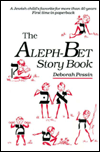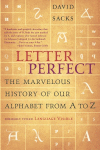The Book of Eicha contains two related words, which are unique in the Tanach:
צָעַק לִבָּם, אֶל-אֲדֹנָי; חוֹמַת בַּת-צִיּוֹן הוֹרִידִי כַנַּחַל דִּמְעָה, יוֹמָם וָלַיְלָה--אַל-תִּתְּנִי פוּגַת לָךְ, אַל-תִּדֹּם בַּת-עֵינֵךְ.
"Their heart cried out to the Lord. O wall of Fair Zion, shed tears like a torrent day and night! Give yourself no respite, your eyes no rest" (2:18)
עֵינִי נִגְּרָה וְלֹא תִדְמֶה, מֵאֵין הֲפֻגוֹת
"My eyes shall flow without cease; without respite" (3:49)
Both words derive from the root פוג, and there is much discussion as to the meaning of the word. Much of the debate surrounds the description of Yaakov's reaction to being told that Yosef was still alive -vayafog libo וַיָּפָג לִבּוֹ (Bereshit 45:26). What exactly happened to Yaakov's heart?
Rashi writes (as translated here):
Vayafog libo - his heart was changed so that he could not believe. That is to say that his heart could not take notice of the things (that Yosef's brothers had spoken). The usage is similar to that which is stated in the Talmud Tractate Beitza 14a (concerning the permissibility of grinding spices on Yom Tov in the usual fashion) that spices lose their flavor ("mefigin ta'aman") if ground ahead of time. It is also similar to the verse in Eikha 3:49 that "my eye(s) shall flow (tears) and not cease, without respite ("hafugot"). Also, note the Aramaic translation of the verse in Yirmiyahu 48:11: "Moav is complacent from its youth and settled upon its lees; it has not been poured from one vessel to another nor gone into exile. Therefore, its fine flavor abides and its bouquet has not dissipated." Concerning this undissipated bouquet, the Aramaic translation renders "lo fug" .
However, the Ramban disagrees (same source):
…Rashi's derivation is incorrect, for the matter of "fuga" is cessation and cancellation…Here too, the expression means that his heart stopped beating and his breathing ceased. The action of his heart stopped and it was as if he was dead. This phenomenon is well documented in situations where sudden and unexpected joy occurs. The medical literature relates that the old and the weak cannot bear unexpected joyous news, for many of them faint away under such circumstances. Their hearts are suddenly expanded and opened and the body's natural heat is transferred to the extremities, leaving the heart with insufficient warmth. The old man (Ya'akov) fell down as if dead.
Although the Ramban does not mention it directly, his mention that the heart is left without sufficient warmth, connects with the Arabic meaning of the root, as quoted by Klein:
Aram. פוג (=to cease, be helpless), Syr. פג (= was cold), Arab. faja (= grew cool.)
Shadal (quoted here) rejects the definition of "cold" (he brings it in the name of Rosenmuller and Gesenius) - would Yaakov remain "cold" to the news about Yosef? But he claims it means "to become weak". He connects the root פוג to the root פוק - also meaning "weak" as in Yirmiyahu 10:4, Yishayahu 28:7. Shadal derives the words safek ספק - doubt, and pikpuk פיקפוק - doubting from the same root.
Kaddari writes that פוג means "to become numb, without feeling". This connects well with the meaning of "become cold" (Ramban), as well as "become weak" (Shadal, Radak), or "to cease" (Rashi, Ibn Ezra). In fact, all three explanations are brought by Amos Chacham in the Daat Mikra to Tehillim 38:9.
The sense of weak, ceased is likely the origin of the word pag פג, meaning "unripe fig". Klein claims that the Latin words for fig - ficus, fica (and from them the English word "fig") - derive from pag. Today the word pag refers to a premature infant.
Steinberg mentions that a number of words beginning with the two letters פג may be related, and I'm inclined to believe him. Many of them seem mean weak:
- פגם - to render defective (verb), flaw (noun)
- פגר - to be backward, to lag behind
- פגע - to harm, to insult
- פגל - to spoil, to foul




